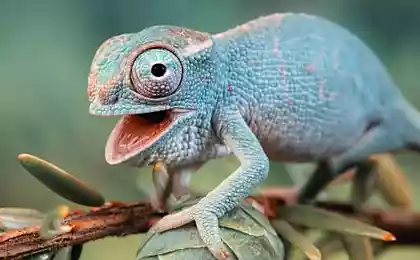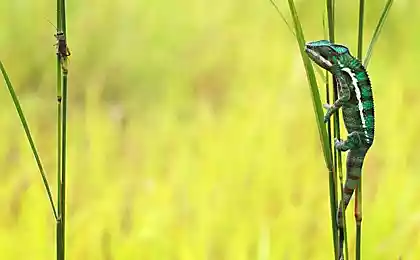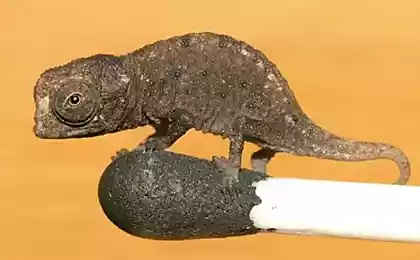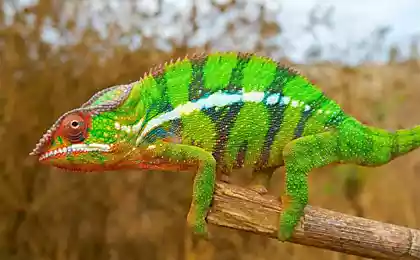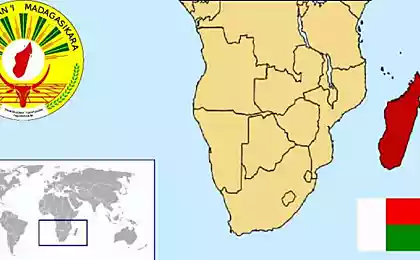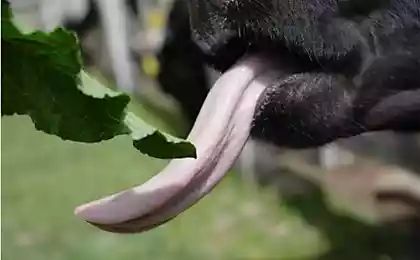812
The smallest chameleon

Everyone knows the ability of chameleons change their color, in fact, because of this ability these lizards and so named in honor of the mythical hero who was known for being able to change its appearance. Because of this specific feature of the chameleon is not easy to notice because despite the fact that they change their appearance for the purpose of communication with representatives of its kind, not mimicry, however, their color often coincides with the background environment, so often found previously unknown species of these enigmatic representatives fauny.

So in 2010, biologists discovered a new kind of chameleon, whose representatives now considered the smallest in the world. The size of these members of the family of lizards except that you can compare the size of the insects: they are so small. Special detection chameleon species are distinguished by scaly horns and bluish dots on the limbs. According to scientists, these chameleons were not previously known, since their appearance on the verge of extinction. It is expected that today the world has no more than one hundred individuals of the species. The fact is that the smallest chameleon in the world mostly live in the tropical forests of Tanzania, which has in recent decades been subjected to cutting. Thus, the destruction of a familiar environment, and resulted in the killing of the species of chameleons. Scientists plan to achieve a legislative decision to ban the cutting down of tropical forests Tanzanii.

Previously, the smallest chameleon was considered a chameleon, which was discovered in Madagascar British wildlife photographer. While the majority of chameleons have a body length of about 30 centimeters (the length of the larger 50-60 cm) and the length of the body, even the youngest members of this family of lizards - not less than 3 centimeters, length chameleon found a British photographer from nose to tip of tail is not exceeds 2, 5 centimeters in size that can be correlated with the length of normal human nail. Chameleons often live in mainland Africa and Madagascar. By the way, the island of Madagascar is considered a kind of historical homeland of these lizards multifaceted: it is assumed that the first chameleons few thousand years ago, there was here, besides many species have occurred precisely in this area, and only then were spread to other corners planety.

Note one more astonishing fact, despite the fact that scientists believe that the very first appeared chameleons in Madagascar, found the remains of the ancient chameleon, whose age is estimated at 26 million years old, it has been found in Europe. Yet, according to scientists, the chameleon blue planet inhabited much earlier - more than 100 million years ago - and refer to the fact that the remains of the oldest members of the family of lizards just might not survive to the present day and has not yet been found.
Source: samogo.net/articles.php?id=1091
